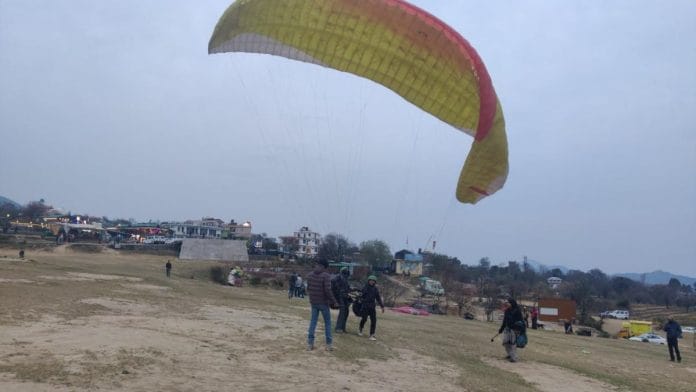Himachal Pradesh: The skies over Bir Billing in Himachal Pradesh, are alive with tandem paragliders, colourful canopies peppering the horizon. But just a two-and-a-half-hour drive away in Dharamshala, Raman Kumar, a pilot with the Dharamshala Paragliding Association sits idle, grounded not by weather but by fear. The recent death of a 19-year-old woman from Gujarat has exposed long-standing safety lapses once again.
“Companies are hiring inexperienced pilots and paying bribes for licenses,” said Kumar, who has repeatedly warned of regulatory gaps. “An accident was bound to happen.”
On 18 January, the young woman from Gujarat died when her pilot crashed during take-off at Dharamsala. A day before that on 17 January, a man from Tamil Nadu died in a mid-air collision with another paraglider in Kullu. And on 8 January, a man from Telangana died in a paragliding clash in the same region. The three paragliding-related deaths in Himachal Pradesh in quick succession, as well as a fourth in Goa, also in January, have served as a wake-up call for governments, police and tour operators.
They’ve exposed a lucrative, high-demand adventure sports industry plagued by corruption in issuing licences, toothless guidelines and poor regulation. The alarm bells were sounded back in 2021 when the death of a 12-year-old boy in a paragliding-related accident in Manali, prompted a PIL and calls for stricter regulations. But little has changed. Goa has temporarily suspended the sport, and in Himachal, the police have ramped up their crackdowns on fly-by-night operations. But small operators continue to mushroom.
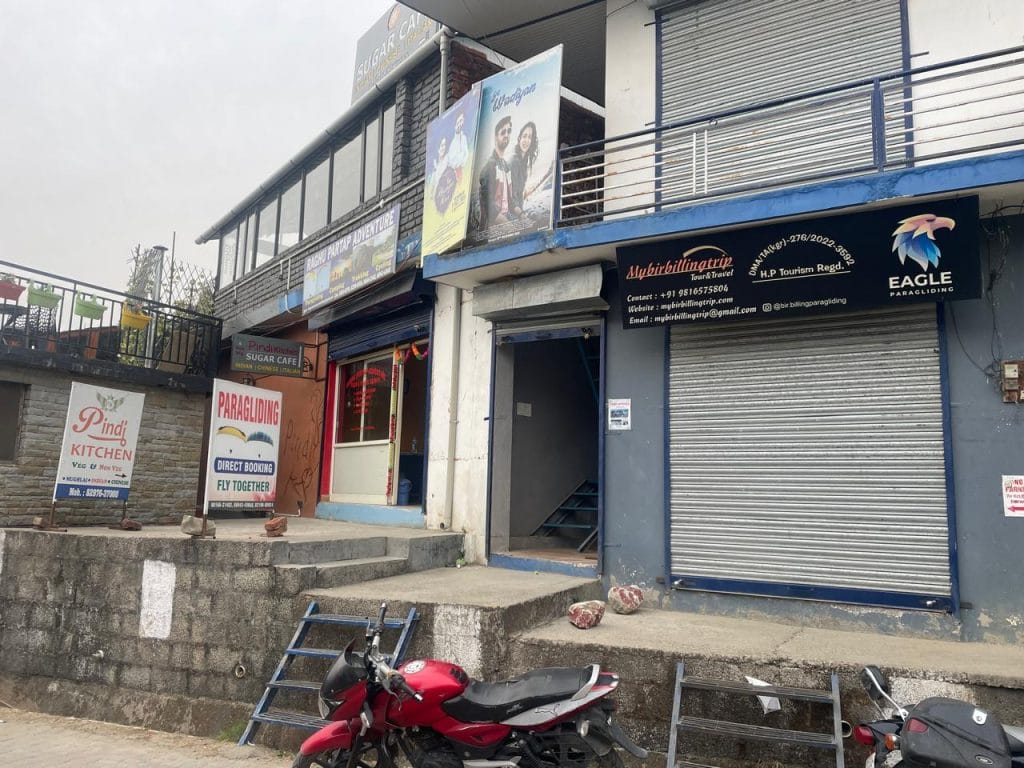
The Himachal Pradesh police even found violations at Bir Billing, the site of the 2024 Paragliding World Cup, proving that no location across the country is immune to the flouting of safety protocols.
“Around seven months ago, we did investigations of accidents that happened in the Bir area and also recently here [Dharamshala],” Shalini Agnihotri, Superintendent of Police, Kangra, told ThePrint. “We found discrepancies in safety procedures being followed and charged people for negligence.”
In Bir, Agnihotri and her team found operators in violation of the advisable flying hours (from sunrise to an hour before sunset) and not using a working GPS tracker on the paraglider. They were charged with criminal negligence, and the case is currently pending with the judiciary.
National bodies like the Paragliding Association of India (PAI), set up to promote, develop and regulate the sport, provide detailed guidelines for paragliding schools, site selection and tandem operators, but there is no compulsion for anyone to follow them.
Sanjay Rao, founder of Nirvana Adventures, a 28-year-old paragliding school in Kamshet, Maharashtra, is frustrated by the lack of regulations and enforcement. It gives the entire industry a bad name.
“These types of incidents are caused by small-time operators in tourist locations. Do these people have a website? No. Can customers ask any questions? No,” he said.
Also read: ‘Indians willing to bargain lives for cheap treks’—trekking companies have no govt oversight
Exploitative operators & ‘unqualified’ pilots
Streets in Dharamshala, Bir and Kullu are dotted with bright, multi-coloured sign boards of gliders soaring through the sky. Phone numbers of pilots are listed in large fonts, enticing tourists to make quick bookings. Operators proudly showcase their registration with the HP Tourism Department on a board above the entrance or in a frame behind the office desk.
All these companies claim to be legitimate. Pilots whip out their licences assuring tourists of their experience and credibility. But the regulations surrounding the sport are weak.
“As of now, there is no prescribed criteria for being an operator,” said Vinay Dhiman, District Tourism Development Officer (DTDO), Kangra. “Even the duty of an operator to check all safety measures is not mandatory as per the rules right now.”
Dhiman was referring to the Himachal Pradesh Aero Sports Rules 2004, which were amended in 2022. Apart from paying a registration fee of Rs 10,000, an operator needs to be an Indian citizen, minimum 10th pass, 21 years of age and hire only qualified tandem pilots.
The most important requirement—whether an operator has deep knowledge of paragliding—is listed as an additional qualification and is vague in its wording. The Rules read that “an applicant should have advanced practical/technical knowledge of aero sport which may be tested through a test as may be determined by the Technical Committee.”
“In most companies, the owner isn’t a pilot and doesn’t know how to paraglide,” said Raman Kumar, adding that business-minded proprietors force pilots to fly multiple times in a day.
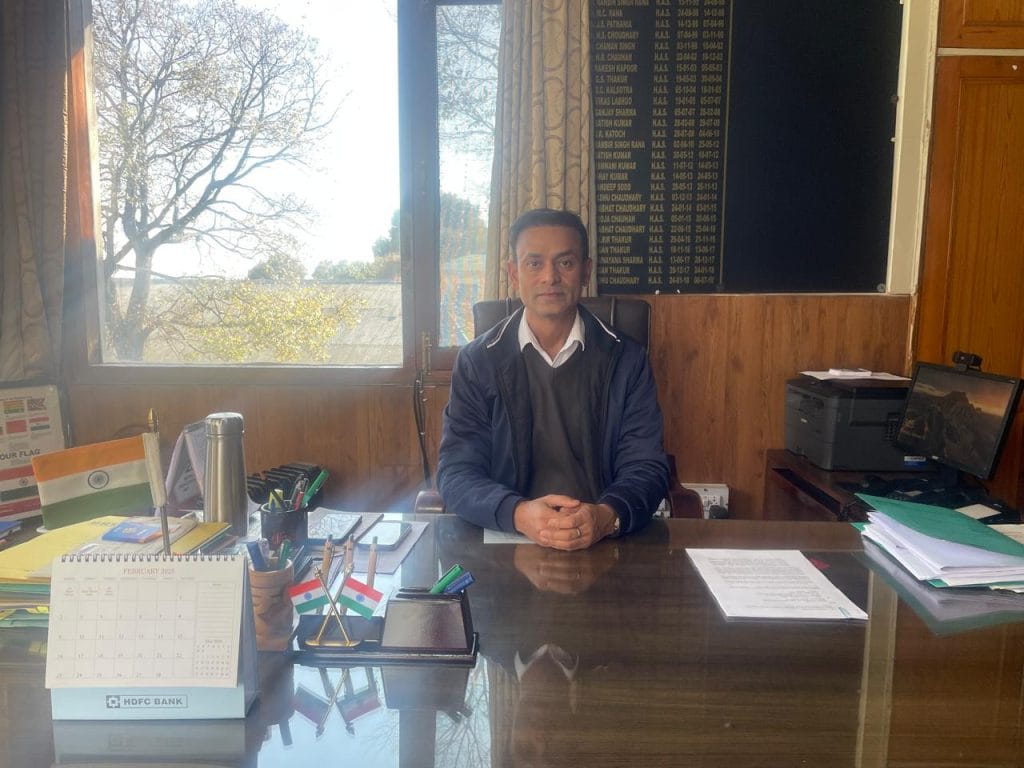
This is further compounded by the mutually beneficial relationship between tour companies and paragliding operators, who offer commissions to taxi drivers for referring customers.
“Taxi drivers are handing over 20 tourists to an operator who has only four pilots,” said Raman. “Some pilots are doing five to six flights a day. Where is the time to check your gear, spend time instructing the passenger and recovering from the previous flight.”
While the Rules do have more stringent guidelines for registering as a tandem pilot, there is no formal education in place for them to obtain the required certifications. Additionally, certificates can be obtained from any school, with reports of forgery received by the tourism department.
“We have received some information that after getting money, the general secretary [of a paragliding operation] issued a certificate to a pilot certifying that he is eligible,” said Dhiman. “There is no in-built mechanism to register a school and no curriculum for flying. This is what is missing.”
Also read: How Uttarakhand trekking turned adventure into tragedy—cost-cutting, scant resources
Lack of clear instructions
At Bir Billing, a continuous stream of tandem paragliders touch down at the landing point. Passengers, their adrenaline running high, land with wide smiles and loud hoots. But for Muskan, 25, her first flight ended with a broken bone that required surgery and eleven screws in her leg.
“We were supposed to raise our legs when landing,” said Muskan, who had gone paragliding near Manali in June 2023. “But no instructions were given to us about this before take off.”
She remembered her pilot telling her to put her feet down when they were landing, as opposed to raising them. Her right leg hit a rock, causing her to trip face down with the pilot falling on top of her.
These types of incidents are caused by small-time operators in tourist locations. Do these people have a website? No. Can customers ask any questions? No.
Sanjay Rao, founder, Nirvana Adventures
The Paragliding Association of India (PAI) has published a 113-page Tandem Pilot Handbook, which provides detailed information on manoeuvres, airflow, in-flight terminology, equipment and passenger considerations.
An entire section is dedicated to preparing a passenger for the flight, including using a ‘Question and Answer’ technique to ensure the passenger understands all the instructions. None of this was done with Muskan.
But she doesn’t completely blame the pilot. The weather conditions were bad that day. The wind speed suddenly increased while they were close to the ground.
But analysing wind speed is also the pilot’s responsibility, according to the PAI handbook. Landing a tandem paraglider in windy conditions is harder than in a solo flight, therefore pilots are supposed to check the weather forecast to ensure wind strength doesn’t significantly increase during the flight.
Muskan didn’t think to question the pilot’s certifications either. While she was climbing up the hill to the take-off point, she could see others taking off and landing safely, which gave her a false sense of security.
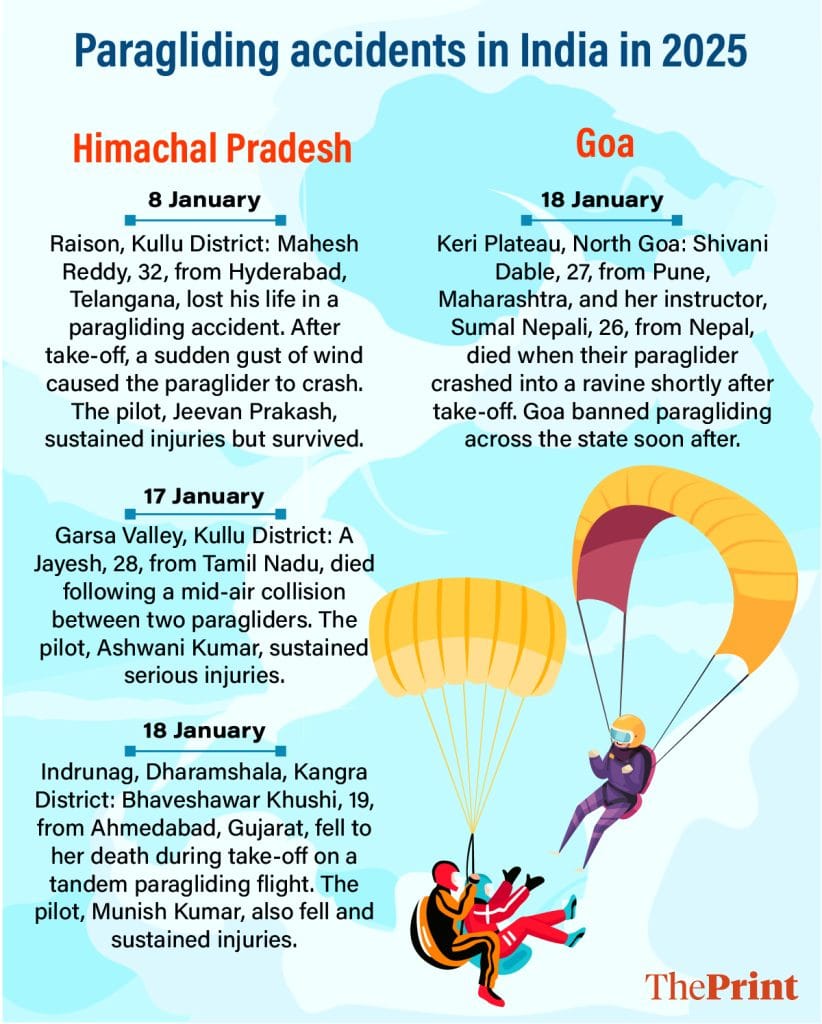
“Indians do not ask any questions,” said Anusha Subramanian, founder and partner at Bohemian Adventures LLP. “They need to do research on the company, the licenses, pilot’s certifications and even check the equipment.”
Sanjay Rao, founder of Nirvana Adventures, doesn’t blame customers for not being discerning enough. According to him, it’s hard for people to differentiate between the legitimate operators and the smaller, less experienced ones.
The Himachal Pradesh government acknowledged this concern. Following an incident in 2021, they deployed safety marshals at take-off and landing sites, yet accidents persist.
Also read: India’s new tourism boom is in the sky. Uttarakhand to Andamans, stargazing on the rise
Marshals fall short
In December 2021, Rishabh Tripathi, 45, decided to try out paragliding in Bir Billing at the behest of his 12-year-old son, Advik. It was the last day of their holiday.
The paragliding operator arranged transport to the take-off site, 15 km away. Nine people—four pilots, a driver, and four passengers—were crammed into an open jeep.
“A two-wheeler was coming from the other side,” Tripathi told ThePrint. “We met with an accident and the jeep fell down a gorge. I blacked out. The operator and pilots fled the scene.”
His wife was conscious, crying for help. Their son, Advik, had hit his head and died on the spot.
The incident caught the attention of the Himachal Pradesh High Court, which made Tripathi a co-petitioner in a PIL in January 2022, demanding stricter safety measures for all adventure sports in the state.
The outcry led to the introduction of marshals at paragliding sites to enforce safety standards. Their duties included checking pilot licenses, insurance papers, indemnity forms, and wind conditions before flights.
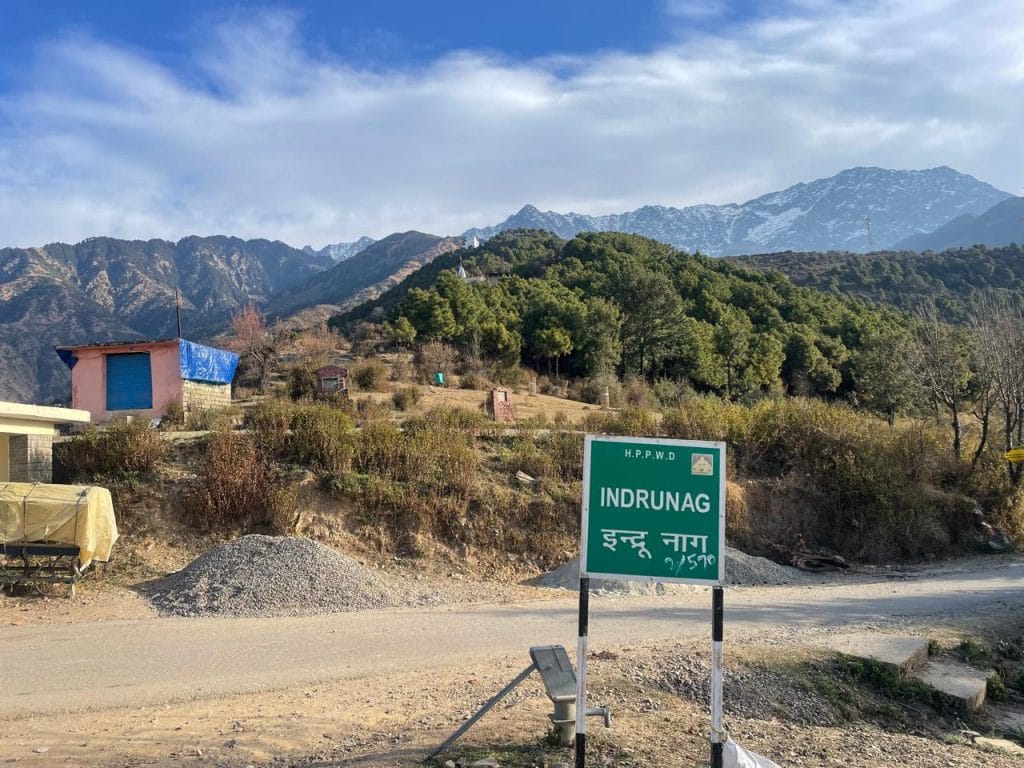
In April 2024, after reports of marshals absent at select sites, the HC briefly suspended paragliding. Marshals were then made mandatory at all locations. But at Bir Billing, arguably the most popular spot in India for paragliding, no marshals could be seen at the landing site.
“What’s the point of a marshal at the landing site when the flight is nearly over?” a pilot who had just landed told ThePrint. But even at take-off points, their effectiveness is questioned, most notably by the state tourism department.
“Marshals are not qualified because of the pay,” said Vinay Dhiman. “They are not experienced pilots, which is what we need.” A marshall earns between Rs 12,000-15,000 per month.
Experienced tandem pilots, on the other hand, can earn anywhere between Rs 1-1.5 lakh per month during peak seasons. “Which pilot will then want to become a marshal at such a low salary,” said Dhiman.
Marshals are not meant to fly, but only those with advanced knowledge of tandem paragliding can realistically enforce safety standards. Dhiman went on to add that a proposal has been sent to the government to recruit more experienced pilots as marshals with increased pay, but it is currently pending.
Also read: Fewer tourists are visiting India now. What’s worse, our stand is we don’t really care
Goa bans paragliding
At Colva Beach, Goa, a makeshift runway is hastily constructed on the beach. Tourists and local people stroll along, carefully avoiding the area demarcated by thick ropes, where motor paragliders take off and land.
Simao Rodrigues, a Goa-based activist, has been fighting against illegal paragliding at the beach since 2022. To him, powered paragliding poses an even bigger threat.
He has seen several incidents of local people getting injured on the beach because of motor paragliding. He specifically recalled an incident in 2022 involving German citizen Dieter Eichler, 84, who lost five fingers while trying to save himself while a motor paraglider was landing.
“It must be banned permanently. This sport is not safe. It’s a killer machine,” Rodrigues told ThePrint. “There is no proper frame of rules and regulations. Aandha kanoon (blind law) is why people are dying here.”
Since then, he has spent his time shuffling between police stations, local panchayats and consumer forums in order to ban the sport. But it took the deaths of Shivani Dable, 27, from Pune and her pilot, Sumal Nepali, 26 for Goa to suspend paragliding state-wide in January 2025.
As of now, there is no prescribed criteria for being an operator. Even the duty of an operator to check all safety measures is not mandatory as per the rules right now.
Vinay Dhiman, District Tourism Development Officer (DTDO), Kangra
The police charged the proprietor of Hike ‘n’ Fly, Shekhar Raizada, with culpable homicide and claimed he did not have proper authorisation in place. But Shekhar said he has been made a scapegoat.
“I was waiting for a renewal of my tourism department trade certificate,” Raizada told ThePrint. “It had been pending with the department since November 2024. I could still operate my business with a reference number.”
According to him, the last inspection of his business was done on 28 November 2024 and marked as compliant. He had been waiting for the final sign-off on his certificate.
“Worst was the administration’s behaviour. I was the first in Keri Beach to get a paragliding certificate. I have been flying since 2011,” said Raizada. “Their knowledge (tourism department and police) and my knowledge are very different.”
While Rodrigues sees this as a move in the right direction, he said it’s only a matter of time before Goa reinstates paragliding. He also questions why the government would impose a statewide ban if, according to them, only one operator was conducting business illegally.
“That means, as per my confirmation, the government is in the wrong. Paragliding operators were all illegal. The government knew it was all happening illegally,” said Rodrigues.
People like Rishabh Tripathi, who lost family members to the sport, are tired of the fight for justice. A petition on change.org, support from the courts and even local authorities have not yielded any real outcomes.
“For the first year and a half, things moved fast. We had 15-20 hearings during this period,” said Tripathi. “Since then, the Chief Justices have changed, governments have changed and I don’t see much progress being made.”
Droves of tourists continue to flock to Himachal Pradesh and Goa. They are drawn to a sport that has surged in popularity in recent years, in part due to Bollywood films like Zindagi Na Milegi Dobara.
Dharamshala may have seen a brief lull in tourist arrivals following the accident, but Bir Billing remains as popular as ever, with buses full of visitors arriving daily, eager to take to the skies.
For many who have just completed their flight, the experience is both meditative and exhilarating. Few pause to check certifications or licenses, placing their trust instead in recommendations from friends and family who have flown before them.
While the January accidents linger in their thoughts, most quickly brush aside any concerns. The thrill of flight, coupled with a personalised video captured by the pilot on a selfie-stick, proves too enticing to resist.
Even those like Muskan, who broke her leg while landing, are unfazed by the experience.
“I don’t regret jumping off the cliff, and I don’t regret the accident either,” said Muskan. “It was the best 10 minutes of my life.”
The author graduated from Batch 1 of ThePrint School of Journalism.
(Edited by Theres Sudeep)



